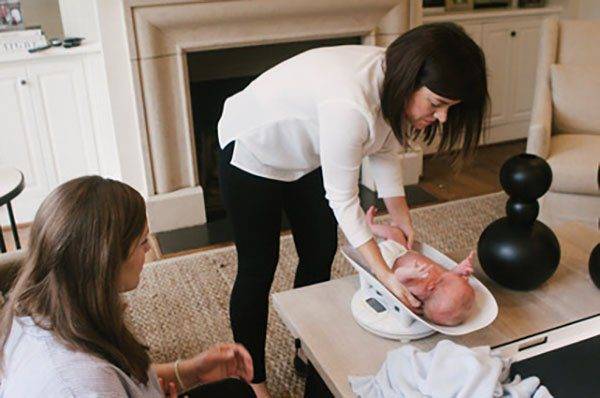Hey there, mama-to-be! Your delivery date is getting close. Presumably, you took a good amount of time to choose your OBGYN. There will likely be multiple nurses attending to you as you birth. Most expectant mothers have their partner by their side, and often other family members and possibly even a birth doula. This group of people is your birth support team. But, who is going to be your postpartum support team?
Pregnant women agonize over the decision of who will support them at the time of their birth—and rightfully so! We spare no expense to have a healthy mother and newborn. Well…we do until they leave the hospital.
Once home, in the U.S., a mother’s partner more than likely will need to go straight back to work. Family members, if they live close by, may visit occasionally, but they also have work and life to get back to as well. Mom will leave the hospital and not see her doctor and nurses for a whopping six weeks.
During this postpartum season, a huge amount of healing, change and growth are occurring in a new mother’s life. This period is as crucial as birth itself and merits the same amount of support and attention as labor. If it is financially possible, it is highly beneficial to hire professional help, such as a postpartum doula.
Many couples are now opting for showers where gifts of service are given as opposed to onesies and blankets. At these showers, contributions of meals, house-cleaning services, and other professional assistance for new families are encouraged.
During your fourth trimester, whether you hire a support person or you rely on a family member or friend for care, here are some questions and guidelines you should consider:
1. Do you and your partner feel comfortable with this person?
That doesn’t just mean do you like them…it means, are you comfortable enough with them to tell them no? I have had clients who hired me for a second baby due to the fact that their mother helped with the first. And while Grandma was lovely and caring, she could not keep her idea that the baby needed a bottle to herself. The sweet new mom in this scenario had a hard time trying to heal and rest and fight her mother on this issue. This leads me to my second suggestion.
2. Does your support person share and/or respect your parenting choices?
You are at your most vulnerable during recovery and bonding, and it is not the time to be fighting someone about the fact that you do not want your baby to have a pacifier. I would even consider writing down in advance what you do and don’t want for you and your baby. If you are hiring someone, you may even include these items in the contract to be signed by both parties.
3. Is this person someone who will take the initiative to perform tasks on their own?
If your support person just wants to “hold and snuggle the baby,” they are not your support person. Your support person should be cooking for you, cleaning for you, and making sure the house is running smoothly so you can rest and focus on yourself and the baby.
4. Is this person trustworthy?
This guideline is really important and easily overlooked. You don’t need Aunt Deborah telling your cousins that breastfeeding is not going well for you. You need someone supporting you that you feel you can trust to listen to you and keep your information private.
5. Is your support person trained using evidence-based research in postpartum recovery and newborn care?
OK, so maybe this one is a loosely veiled plug for hiring a postpartum doula. But, it is very true. It is said you can tell where a person’s treasure lies by where they invest their time and finances. Investing in your recovery as a new mother is investing in yourself and your family.
Ask a seasoned mother if she spent too much money on newborn clothes and you will likely hear a resounding yes! But I promise you this: No one ever says, “I wish I had spent less on my fourth-trimester support.”





